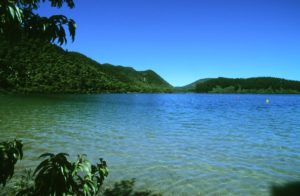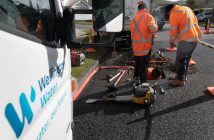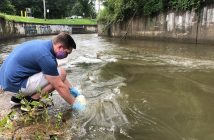A Freshwater Symposium hosted by Local Government New Zealand last week showed there is a strong platform for improving freshwater quality in New Zealand
Over 200 delegates from across local and central government, iwi, the science community and the primary sector gathered in Wellington for the two-day symposium.
Speakers included Minister for the Environment Hon Dr Nick Smith, the Prime Minister’s chief science advisor Sir Peter Gluckman and US-based water scientist David Maidment.
LGNZ President Lawrence Yule says the symposium showed there is broad agreement among many of those involved in water management and guardianship about the scale of the issue and the need to address it.
“There is already a lot of excellent work underway to improve our waterways, including from councils, the farming sector, environmental groups and community initiatives, but we all know more effort is needed,” Yule says.
“The symposium provided a forum for all parties to have their say and I was heartened by the strong desire shown by attendees to share ideas, work underway and a commitment to ensure New Zealand’s water quality is lifted.
“Achieving the water goals of our communities is going to take hard work, time and of course money. Following this Symposium we are in a better place to take this issue forward than even six months ago.”
LGNZ Regional Sector Chair Doug Leeder believes the symposium showed there is a future focus across the board.
“We all know there are issues in some catchments,” Leeder says.
“Continuing to improve our water quality will require a collaborative approach grounded in science, and I think there is agreement on the challenges we face.”
Speaking at the Symposium Sir Peter Gluckman said it takes time and a consistent but adaptive approach to clean a catchment and it cannot be done without broad stakeholder engagement.
“There are no silver bullets in water restoration – multiple actions are needed, requiring partnerships between central and local authorities, iwi, citizens and businesses including farmers,” he explains.
“We need to be aware of the multiple stressors on fresh waters, and that fresh waters are a product of their catchments.”
Yule says that means both urban and rural communities will need to consider how they work towards cleaner water, led by and in partnership with local government.
“We need to use the science we have available, adopt appropriate technologies and work together.
“It won’t be easy and we will all, as councils, businesses and individuals, need to take responsibility for this task,” he says.




